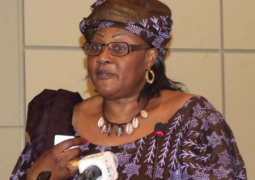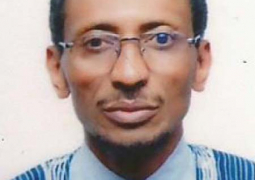The world’s first vaccine against malaria will be introduced in three countries - Ghana, Kenya and Malawi - starting in 2018.
What is Malaria?
Malaria
in humans is caused by one of four protozoan species. All species are
transmitted by the bite of an infected female mosquito. Occasionally Malaria
transmission occurs by blood transfusion or congenitally from mother to foetus.
Malaria
Symptoms and Signs
Malaria
is characterized by fever and flu-like symptoms, including chills, headache,
body aches and fatigue; these symptoms may occur at intervals. Malaria may be
associated with anaemia and jaundice, and may cause kidney failure, coma and
death. Deaths due to Malaria are preventable.
Malaria
Prevention
Because no currently available drug regimen guarantees 100% protection against Malaria, prevention of infection requires taking antimalarial medication as directed in addition to prevention of mosquito bites. Mosquitoes that carry Malaria have nocturnal feeding habits, thus Malaria transmission occurs primarily between dusk and dawn. Measures to reduce mosquito contact during critical hours include:
Remaining
in well-screened or air conditioned areas
Using
mosquito nets treated with Permethrin
Wearing
clothing that covers most of the body and has been treated with Permethrin
Using
insect repellents containing appropriate levels of DEET
Using
insecticides in living and sleeping areas where appropriate
Passport
Health carries CDC and WHO recommended insect repellents for purchase.
Immunization,
Vaccines and Biologicals
Malaria
vaccines
Introduction
and malaria vaccine development
Status
of vaccine development
The
complexity of the malaria parasite makes development of a malaria vaccine a
very difficult task. Recent progress has been made with the completion of a
Phase 3 trial of the RTS, S/AS01 candidate vaccine and review by the European
Medicines Agency and WHO.
There
is currently no commercially available malaria vaccine. Over 20 other vaccine
constructs are currently being evaluated in clinical trials or are in advanced
preclinical development. See link to Rainbow table below.
WHO rainbow table
The
malaria vaccine candidate RTS, S/AS01
RTS,S/AS01
is the most advanced vaccine candidate against the most deadly form of human
malaria, Plasmodium falciparum. A Phase 3 trial with 15 460 children in seven
countries in sub-Saharan Africa (Burkina Faso, Gabon, Ghana, Kenya, Malawi,
Mozambique, and the United Republic of Tanzania) began in May 2009 and has now
been completed.
There were two age categories in the trial:
Children
aged 5-17 months at first dose receiving the RTS,S/AS01 vaccine or a comparator
vaccine; and
Children
aged 6-14 weeks at first dose who receive the RTS,S/AS01 vaccine or a
comparator vaccine in co-administration with the pentavalent vaccine from the
routine immunization schedule.
All children received 3 doses of study
vaccines vaccine at 1 month intervals. The role of a fourth dose 20 months
after the first dose was also evaluated.
After review of the study data, the European
Medicines Agency issued a positive Scientific Opinion about the risk-benefit
balance, upon agreement with the manufacturing company about further research
plans as part of Phase 4 evaluation.
WHO, upon review of the data, recommended
pilot implementation studies to be conducted for further evaluation of
implement ability of a four dose schedule in children aged 5-17 months at first
dose and further evaluation of the risk/benefit profile.
A comprehensive WHO Q&A gives further
information on the RTS,S/AS01 malaria vaccine implementation programme (MVIP).
The world’s first vaccine against malaria will
be introduced in three countries - Ghana, Kenya and Malawi - starting in 2018.
The
RTS,S vaccine trains the immune system to attack the malaria parasite, which is
spread by mosquito bites.
The
World Health Organization (WHO) said the jab had the potential to save tens of
thousands of lives.
But
it is not yet clear if it will be feasible to use in the poorest parts of the
world.
The
vaccine needs to be given four times - once a month for three months and then a
fourth dose 18 months later.
This
has been achieved in tightly controlled and well-funded clinical trials, but it
is not yet clear if it can be done in the “real-world” where access to health
care is limited.
It
is why the WHO is running pilots in three countries to see if a full malaria
vaccine programme could be started. It will also continue to assess the safety
and effectiveness of the vaccination.
Dr
Matshidiso Moeti, the WHO regional director for Africa, said: “The prospect of
a malaria vaccine is great news.
“Information
gathered in the pilot programme will help us make decisions on the wider use of
this vaccine.
“Combined
with existing malaria interventions, such a vaccine would have the potential to
save tens of thousands of lives in Africa.”
The
pilot will involve more than 750,000 children aged between five and 17 months.
Around half will get the vaccine in order to compare the jab’s real-world
effectiveness.
In
this age group, the four doses have been shown to prevent nearly four in ten
cases of malaria.
This
is much lower than approved vaccines for other conditions.
Malaria
vaccine: How good is good enough?
It
also cuts the most severe cases by a third and reduces the number of children
needing hospital treatment or blood transfusions.
But
the benefits fall off significantly without the crucial fourth dose.
Ghana,
Kenya and Malawi were chosen because they already run large programmes to
tackle malaria, including the use of bed nets, yet still have high numbers of
cases.
Each
country will decide how to run the vaccination pilots, but high-risk areas are
likely to be prioritised.
Despite
huge progress, there are still 212 million new cases of malaria each year and
429,000 deaths.
Africa
is the hardest hit and most of the deaths are in children.
The
pilots are being funded by: Gavi, the Vaccine Alliance, the Global Fund to
Fight Aids, Tuberculosis and Malaria, Unit aid, the WHO and GSK.
Dr
Seth Berkley, the chief executive of Gavi, said: “The world’s first malaria
vaccine is a real achievement that has been 30 years in the making.
“Today’s
announcement marks an important step towards potentially making it available on
a global scale.
“Malaria
places a terrible burden on many of the world’s poorest countries, claiming
thousands of lives and holding back economies.
“These
pilots are crucial to determining the impact this vaccine could have on
reducing this toll.”
The
PfSPZ malaria vaccine was 100% effective in U.S. clinical trials and 48%
effective in trials run in Mali, exhibiting a previously unseen level of
sustained efficacy in that region.
PfSPZ is just one of several promising
malaria vaccines in development, any of which could help us eradicated this
deadly disease that claimed almost half a million lives in 2015 alone.
MOSQUITOS:
VECTORS OF INFECTION
Mosquitos
are ugly creatures. They buzz, bite, and bother you, but more than just being
annoying, they harbor parasites that transmit malaria. A person infected by one
of these parasites via a mosquito bite can experience fever, chills, vomiting,
and sometimes even death.
The
World Health Organization predicts that almost 3.2 billion people — that’s half
the world’s population — is at risk of catching this disease, and among those
at risk, 214 million people were infected in 2015. Of those infected with
malaria, at least 438,000 people passed away.
While
global efforts have successfully reduced the incidences of malaria by 60
percent since 2000, researchers may have just found a way to take that progress
even further thanks to a new malaria vaccine.
A
NEW WAY TO VACCINATE
A
malaria vaccine has been particularly elusive in the medical community because
malaria originates from a parasite and not a virus. Therefore, a live but weakened
form of the parasite that infects humans was used in the creation of this new
investigational vaccine, Sanaria® PfSPZ. The weakened sporozoites parasite was
developed by Sanaria Inc. through a clinical study conducted by researchers
from the National Institute of Health’s (NIH) National Institute of Allergy and
Infection Diseases (NIAID) division and the University of Bamako in Bamako,
Mali.
For
further information search for WHO, UNICEF web sites, MRC Gambia, send email to
azadehhassanmd10@gmail.com, Text only to 002207774469/3774469.
Author
DR AZADEH Senior Lecturer at the University of the Gambia, Senior Consultant in
Obstetrics & Gynaecology, Clinical Director at the Medicare Health
Services.



